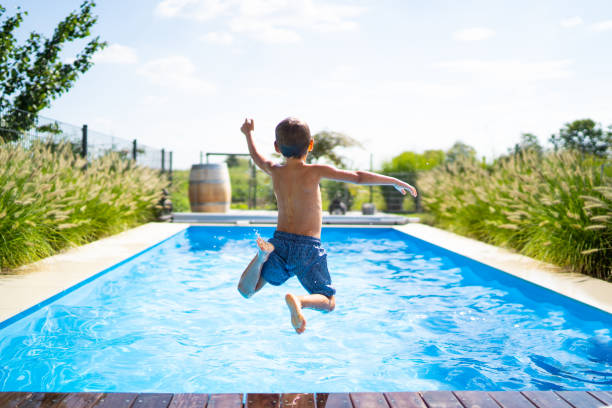Getting a new pool on your premises is an exciting step, whether you’re a homeowner or in business. A swimming pool offers endless fun and relaxation, but you must ensure that people are safe around water.
Your pool needs periodic inspections to avoid breaking pool safety laws and prevent potential injuries. That’s why you need to consult SF Pool Fence Inspections experts to make sure you’re compliant with the summertime safety checklist for swimming pools. Here are a few tips you should know.
Start with Quality Pool Construction
The process of building a pool is not to be taken lightly. The first step to safety is hiring an experienced and licensed pool builder. Professionals follow a strict code of ethics and complete the project according to the current industry standards. Because they are bound by state legislation and federal law, they do everything possible to prevent injury and fatal accidents.
A pool constructed with the right equipment is less likely to leak. Even 10 cm of pool water can drown young children; there is no such thing as too little water to cause harm. Though inflatable and wading pools are often overlooked, they can still cause accidents if not constructed or monitored properly. Consult a certified pool builder to get started on the right foot.
Safety Barriers
Any private swimming pool measuring at least 300 mm deep should have a childproof safety barrier. There should be no direct access to an outdoor pool or spa through a building. Self-closing and self-locking gates should open away from the swimming pool. Putting a prop in a pool gate is illegal. These rules apply to:
- Spas, Jacuzzies, and hot tubs
- Relocatable or inflatable pools
- Bathing and wading pools
- Above-ground, indoor, and in-ground pools
A safety barrier should be installed by a registered builder or an owner-builder with a certificate of consent. A permit is needed to install it. If you’re the owner, it is your responsibility to monitor the operations and activities around the pool or spa barrier to prevent unauthorized entry. You also need permission to replace or change the barrier to ensure it is compliant with the prevailing regulations. Consult a building surveyor or local council for guidance.
Regular Pool Inspections
Pools need regular maintenance to remain in their pristine condition. It is not unusual to have cracks, loose tiles, leaks, faulty ladders, and chemical imbalances. With regular pool inspections, you can escape these issues as well as electrical hazards like damaged pool lights and exposed wires. A professional pool and spa inspector identifies risks and mitigates them before they turn into disasters. Determining non-compliance issues in the pool areas should give you peace of mind and save you money that could be lost through legal fines and costly repairs.
The law requires pool owners to outsource pool inspection services from an accredited certifier every four years. There are over 30 safety items covered on the pool inspection checklist from pH and chlorine levels, water volume, signs, gates, ladders and steps, decking, algae and contaminants, filters, diving boards and slides, pumps, pool barriers, drain covers, and alarms. You can request to see the checklist just to be sure that the essentials have been taken care of. It takes around two hours to inspect one pool.
Emergency Plan
Basic CPR is critical in a drowning incident. It helps while waiting for an ambulance to resuscitate the patient. It is important to hang CPR signs by the poolside and have handy first aid kits at all times. All in all, constant active supervision is key to preventing near-drownings and drownings. No child under 16 years should be obligated to supervise younger kids. Toddlers below age five can only swim within arm’s reach.
A pool safety certificate is necessary if you want to maintain a safe swimming pool. Choose a trusted pool builder and keep tabs on the latest pool fencing and equipment regulations. Educate yourself, your loved ones, and your clients on the dangers of water. To learn more about summer safety tips for swimming pools, please get in touch with a qualified pool and spa inspector.
